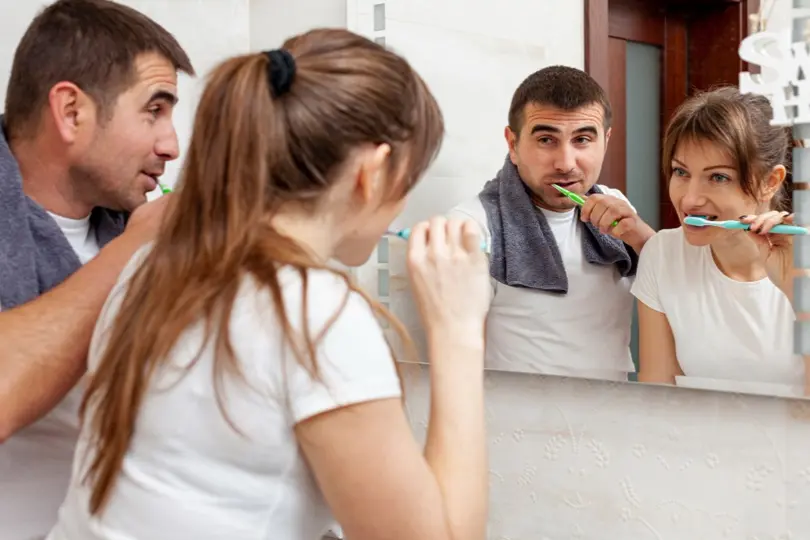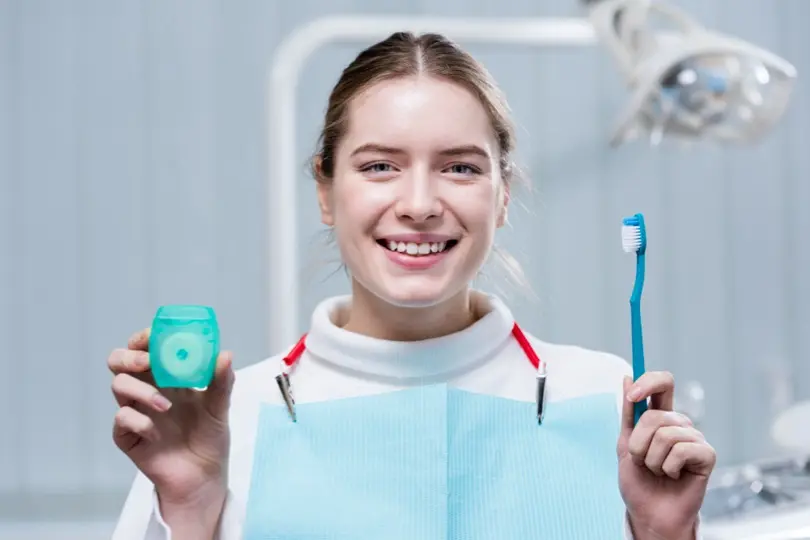
In many households, the effort to keep everyone healthy involves repeating certain habits that may seem basic but can have a significant impact on long-term outcomes. One area that sometimes aligns with this general focus is dental care, which can be viewed as an integral part of the family’s daily routine. While every home handles routines differently, the role of oral hygiene might carry more value than it appears. Including these activities may support a wider understanding of how health is maintained across age groups.
Brushing is a routine part of the day
Brushing your teeth daily can help avoid hygiene issues. Family members can become accustomed to this happening every day without being reminded. Even younger individuals might develop a better understanding of routine if brushing is seen as a normal part of life. These habits, though simple, can act as reminders that health is managed over time. When brushing is repeated daily, it could become more about structure than about the act itself. This repetition may also encourage broader discipline in areas outside of oral care. Depending on the home, brushing might be used to help establish shared expectations.
Practical Advice:
- Replace toothbrushes every 3 months or after illness.
- Use an electric toothbrush with a built-in timer for better brushing.
- Supervise children under 8 to ensure proper technique.
Flossing to support more complete cleaning
Flossing is often added to routines to reach areas that brushing might not affect. While some families may not focus on it equally, this step could contribute to a fuller sense of care. Teaching how and when to floss might also create space for conversation about long-term health goals. In homes where routines are encouraged, flossing could become another consistent task. Although this process is usually quick, its impact might grow over time. Even if results are not visible daily, the effect might be recognized later. Having a routine that includes flossing could make oral hygiene feel more complete, especially when repeated across different age levels.
Practical Advice:
- Use waxed floss or water flossers for sensitive gums.
- Floss before brushing to loosen plaque for better cleaning.
- Keep floss picks in the car or lunchbox for on-the-go hygiene.

Another task sometimes found in oral routines involves rinsing the mouth after brushing or flossing. While this step might seem optional, it could still support the feeling of completing a full cycle of care. In families that follow shared health habits, rinsing may be used to mark the end of the hygiene process. Even if not every person follows the same method, including rinsing could strengthen the sense of structure. Some families may attach importance to rinsing due to freshness or comfort, while others may use it as a step in building awareness of mouth care. Its repetition might be small, but it could support the longer pattern of hygiene.
Practical Advice:
- Use mouthwash at a different time from brushing to maximize fluoride benefits.
- Choose products with the ADA seal for safe, effective use.
- Avoid eating or drinking for 30 minutes after rinsing.
Dental visits may build understanding over time
Besides home routines, visiting a provider might help reinforce what is done each day. For example, a pediatric dentist in Oceanside, like The Super Dentist, may help introduce young patients to care routines that support home efforts. These appointments are sometimes used to confirm whether family habits are working or could be improved. When visits are linked with home care, the connection between daily tasks and professional guidance may become clearer. Not every household follows the same schedule, but occasional checkups might still support long-term goals. These visits do not replace home effort but might increase understanding of why certain habits matter. This kind of external support can help reinforce internal structure.
Practical Advice:
- Schedule checkups during school breaks for convenience.
- Ask your dentist to demonstrate proper brushing/flossing techniques.
- Keep a dental visit calendar on the fridge to track appointments.
Encouragement across the family group
Sometimes, the success of daily routines may depend on how much the household encourages shared participation. If routines are supported by everyone, they might become easier to maintain. Oral care is one area where this kind of encouragement may be helpful. When a family treats brushing and other steps as normal, it might reduce the pressure on individuals to remember alone. Although not every person responds to routines the same way, a shared effort could lead to better consistency. Encouragement may not need to be direct but could be seen through examples or quiet reminders. This could raise the probability of more extended participation over time.
Practical Advice:
- Create a reward system for consistent routines.
- Turn brushing into a family game or challenge.
- Involve kids in choosing dental supplies to build excitement.
Conclusion
Families often form habits that shape their daily life and sometimes affect overall health in quiet ways. Daily dental routines may fit into this general pattern, offering chances to build structure and reinforce consistency. While each task might seem small, together they may support better hygiene and understanding. Including oral care as a shared practice could help improve long-term habits, especially when supported by both home routines and occasional professional input.
Photo Credit:
Photo 1, Credit to Freepik || Photo 2, Credit to Freepik (CC0 1.0)




